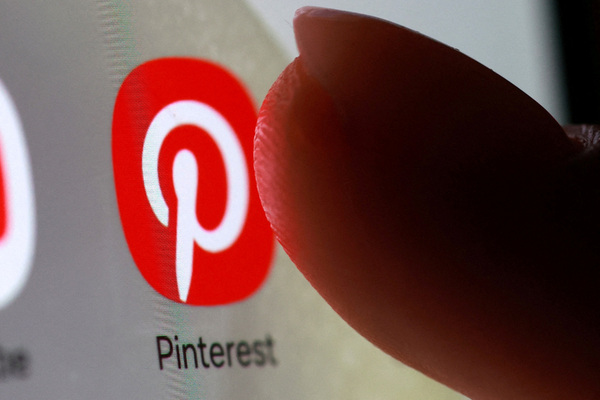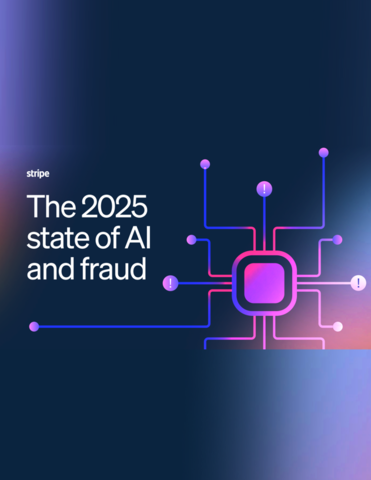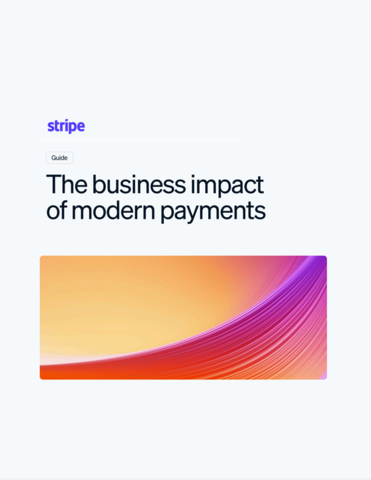Helping businesses thrive: payment trends that will transform 2022 and beyond
Sponsored by CashflowsCovid-19 reshaped the way consumers and businesses approach payments, and fintech innovation is at the forefront of these developments. As we look to the future, what can we expect from the payments industry?

Covid has made consumers and businesses alike more accustomed to doing almost everything online. This has created a significant spike in the demand for e-commerce, making seamless online payment experiences more of a priority than ever before.
Better payments infrastructure will be critical for merchants to ensure a swift recovery from the impact of the pandemic. From cross-border transactions, to introducing buy now, pay later (BNPL) for business-to-business (B2B) transactions, there has never been a better time for tech and payments to provide innovative solutions in unison. As the fintech landscape continues to evolve, here are my top six predictions that will shape payments in 2022 and beyond:
Open Banking paving the way for underserved businesses
Open Banking is increasing the services available to businesses who have historically struggled to compete with big-name brands. Partnering with a financial service provider that offers Open Banking services gives them access to consumer banking, transaction and other financial data from banks through APIs (application programming interfaces). This is a huge benefit to merchants as it gives them ownership and removes unnecessary third-party processes and fees.
Open Banking services will be a must-have for all businesses in a post-pandemic environment. SMEs looking to grow their business in a digital-first market will see undoubted improvements in their internal processes and ability to accept payments.
BNPL creating opportunity for B2B use cases
During the pandemic, one in three UK consumers used BNPL services more often than before it. Now the payments industry is exploring how BNPL can benefit other businesses.
B2B BNPL aims to solve the issue of lack of funds from both buyer and seller. It is less risky than B2C BNPL for both parties as it creates a reliable source for B2B buyers, which ensures that they receive credit while the seller gets paid faster through outsourced funds.
B2B BNPL will allow businesses to purchase the goods and services needed to grow their business, while the BNPL provider pays the seller in full, assuming their customer’s default risk.
Harnessing the power of data
Data, if used in the right way, can transform businesses, with the average person predicted to produce data every 18 seconds by 2025. Data can identify patterns in purchase behaviour and preferences, allowing businesses to produce tailored experiences for their customers.
That’s where technologies such as AI and machine learning (ML), and their ability to analyse large amounts of data, can help. AI will define the future of payments as it enables a thorough analysis of consumer and business transaction histories and spending habits. Merchants that have this at their disposal will generate valuable insights and the ability to create unique experiences catered to individual buyers.
The emergence of B2B marketplaces
A B2B marketplace is similar to e-commerce websites that connect buyers and suppliers, such as ASOS or Etsy. It offers convenience by providing options from various suppliers, an increased number of potential customers, and the ability to provide online services such as trading and payments, all on one platform.
B2B marketplaces are primarily beneficial for SMEs as they help them reach more customers and market their services in a more accessible way. In simple terms, B2B marketplaces offer SMEs in particular the advantage of a wider consumer pool and the ability to offer online services without needing to create an e-commerce site.
The marketplace future is still in its infancy, however, and could take radically different forms. Big-brand B2C marketplaces, for example, could become the dominant, multi-category marketplace for B2B use-cases. Distributors will therefore need to leverage the marketplace opportunity in order to play a key role in crafting what that future looks like.
Creating solutions that will help SMEs thrive
Consumers and other businesses have put more emphasis on supporting local producers and suppliers since the pandemic. There is a strong sense that small businesses have an important role in “building back better”. Cashflows research found that 70 per cent of UK consumers are willing to spend up to 10 per cent more on an item from an independent or local provider than what they would pay for the same item from a chain.
SMEs are the lifeblood of the UK economy and fintechs must operate to support both big and smaller businesses. In separate research, Cashflows found that 71 per cent of UK SMEs say their customers expect optimised online transactions. Strategic partnerships will help merchants gain access to a myriad of payment methods (both online and in-store) and personalised or one-click checkout experiences. The ability to offer these innovative payment solutions will be key to SMEs’ ability to compete against big-name brands.
Cryptocurrency entering the mainstream
During the pandemic, fintechs, banks and governments worldwide have been looking for ways to leverage the growing interest in cryptocurrencies for everyday transactions.
For example, Stablecoin, a fiat-backed digital currency, has emerged as an innovative payment technology that combines the stability of fiat currencies with the benefits of public blockchain networks. Stablecoin is also growing rapidly, with more than $50 billion worth of Stablecoins in circulation that currently power $200 billion of payment volumes each month.
The pandemic has accelerated the shift toward digital and contactless payments, but it has also led to a more mainstream acknowledgement of cryptocurrencies as viable forms of payments. While the industry still has a long way to go, clear regulation that gives people more confidence in the safety of blockchain networks will be key. In doing so, cryptocurrencies will become a form of payment that could benefit the poor and the unbanked, as well as smaller businesses such as street vendors.
The future of payments looks bright
Covid-19 has accelerated innovation within the payments sector, encouraging us all to embrace digitisation. As they look towards the future, businesses must be receptive to inevitable and ongoing changes in both technology and consumer behaviour. This will be key in ensuring success in a post-pandemic environment.
It is impossible to predict precisely what payments innovation will look like in the next five years, but it is clear that the role of payments is now more than a simple exchange of value for goods and services. The pandemic has created a once-in-a-lifetime opportunity to rethink how businesses approach their payments strategy. Payments innovation will not only improve the customer journey, but will be imperative for ongoing growth.
To find out about how your business can optimise its payment strategy, go to www.cashflows.com
By Hannah Fitzsimons, CEO, Cashflows

Business Reporter Team
Related Articles
Most Viewed
Winston House, 3rd Floor, Units 306-309, 2-4 Dollis Park, London, N3 1HF
23-29 Hendon Lane, London, N3 1RT
020 8349 4363
© 2025, Lyonsdown Limited. Business Reporter® is a registered trademark of Lyonsdown Ltd. VAT registration number: 830519543





